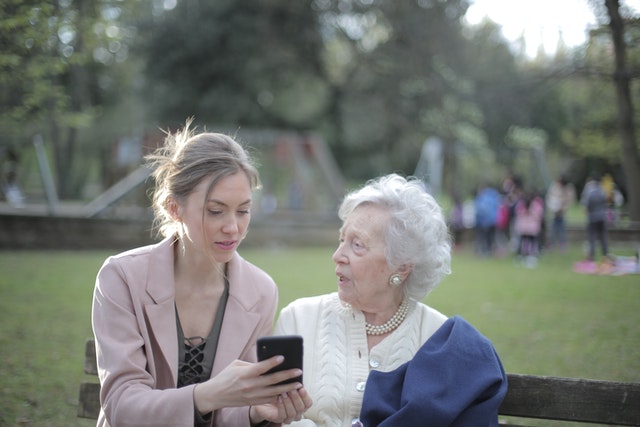Words: Nelressa Stallings-FAYE
Are you taking care of a home-bound, or sick individual? It is a commendable, selfless act to put others before ourselves. The sick and elderly who need support depend on caretakers for companionship and comfort in times of sickness. But, who takes care of the caregiver?
Caregivers are extraordinary people placed in extraordinary situations to take care of others before themselves. Whether a family member, friend, colleague, or neighbour, the act of giving to others creates a positive flow of energy into the universe. In order to go with this flow, we should learn to refuel our personal energy tanks, balance work and life — to continue our journey in life.
Dad’s Call
I moved back home to the US from South Korea to take care of my father. He became ill and needed special care full-time. Without being asked I dropped everything, packed my bags and moved home sans a second thought. I found a way to work from home, since my writing was primarily freelance [copywriting can be done virtually anywhere] at that point in time.
My life changed completely. My schedule consisted of calling doctors, getting my father dressed each day, driving to appointments, cooking, cleaning, taking in home visits from therapists and guests, picking up prescription drugs, and giving companionship throughout the day. I spent time at night researching the Internet for work and writing. Many of us think this task could be daunting, but it came quite naturally and pleasantly for me.
Several months later, I started feeling drained. I did not understand why. My routine was the same, but something was missing. After thinking about the situation, I realised I did not spend enough time recharging my own batteries. I was burning out. I stopped yoga practice, writing in my journal, hanging out with friends and, most of all, meditating. Without the supply of my own conditioning, I was starting to lose out. Soon, I resumed placing a few activities into my personal life and meditating to help replenish used energy.
Bring Balance
Caregivers should take time each day to care for themselves in order to serve others. It is important to sleep, eat, work, and exercise on a daily basis. When taking care of others, it is also important to rest your mind. We tend to take in all the problems of the world — including the ones we care for. I believe it is god’s way of teaching us a lesson. One of those lessons is to understand and create balance between our lives and those we help. At times, we try to fix problems when we should learn to let go. Placing extra burden and stress in our lives can become frustrating, or draining. With rest, the mind naturally replaces lost energy to continue each day; the universe too provides us with the tools to make the right decisions in these situations. We restore calm through pleasant activities, or breathing exercises [meditation], while restoring our mental state and creating peace from within.
There are a few simple activities that helped me restore balance each week. You may pick one, or two, for each day too.
- Meditation. Find a quiet place in your home. Sit with your eyes closed and breathe deeply. Fill the lungs completely, hold your breath for three seconds; then let it out. Pay attention to your breathing pattern [10-15 minutes].
- Exercise. Find a fun activity to do outdoors for 20 minutes, or more [walk, jog, swim, gardening, playing with children, or light cleaning]. The sun is also a great energy refill.
- Pamper yourself.Go out and get a massage, pedicure, manicure, eye-brow shaping, or take a hot bubble bath, or just soak your feet. Submerge yourself in comfort.
- Be social.Call a good friend, or hang out with a family member who makes you laugh. Then, enjoy your time sharing and laughing.
- Try reading self-help and inspirational books. Eckhart Tolle, Deepak Chopra and Wayne Dyer are some of my personal favourites.
- Find positive and inspirational phrases, poems, scriptures, mantras, or quotes. Write them on cards that you can keep near your bed. Read them aloud in the morning and before bed-time for a month, or more.
- Practice gratitude.Try a spiritual practice of saying ‘thank you’ several times, especially in times of frustration. Think about what you are grateful for. Take inventory of all the people and things in your life, and say ‘thank you.’ Try it for a week, or more.
- Get creative.Get involved in creative activities like painting, music, dance, drawing, singing, diary/journal writing, or any other pastime, where the spirit is at play, or at work.

